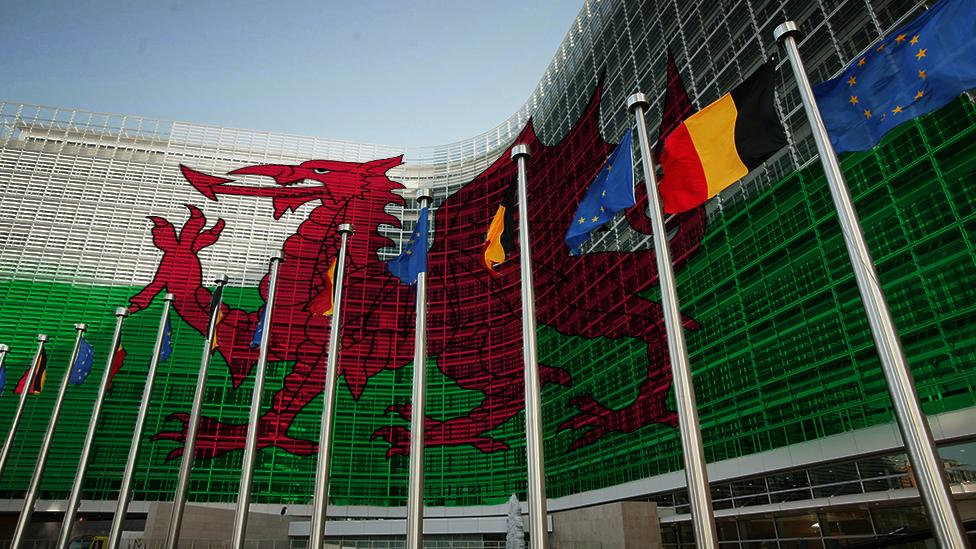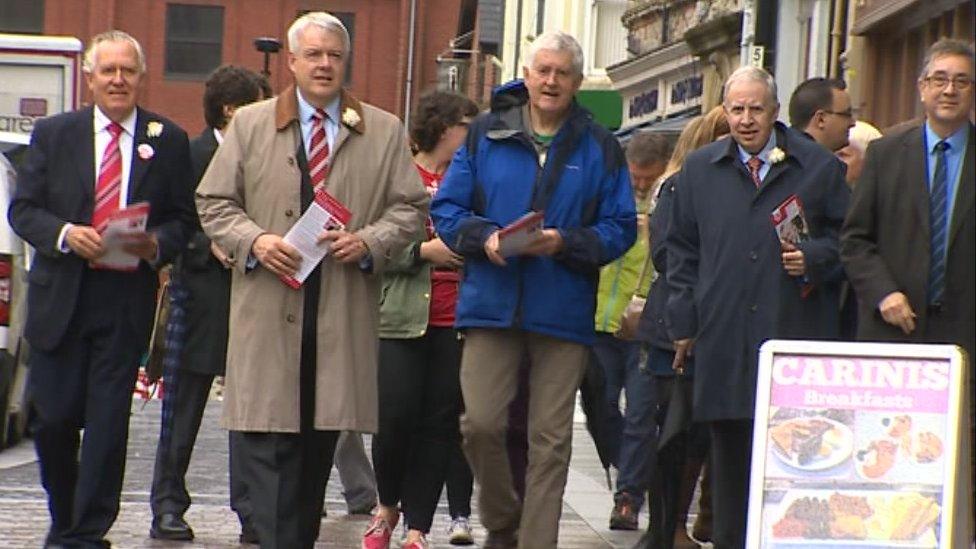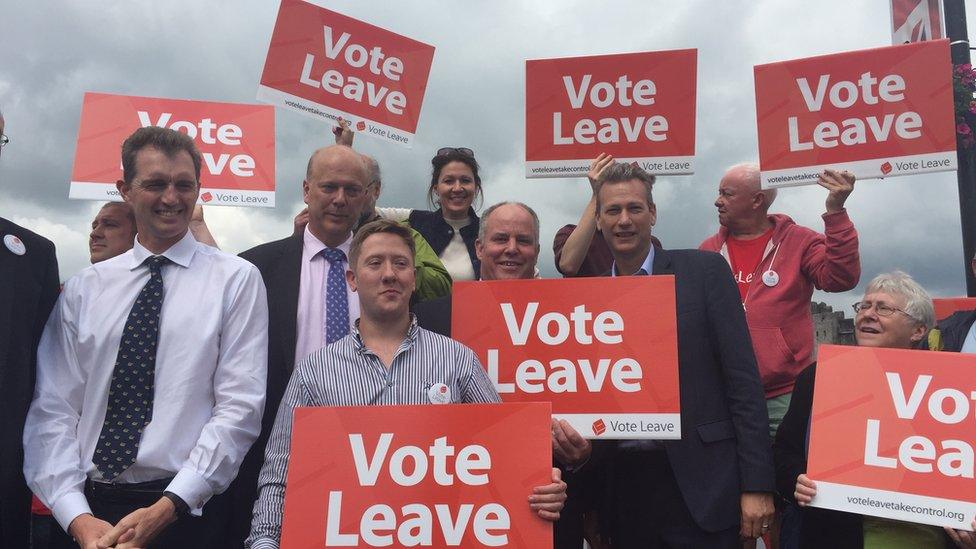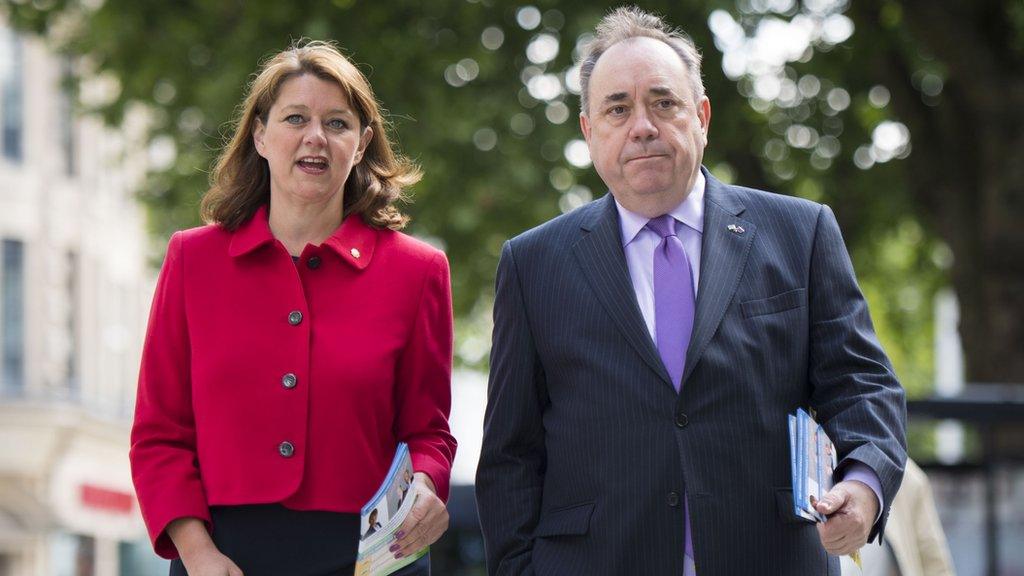The EU referendum campaign in Wales: What happened?
- Published

Wales' leaders warned early in the year that the timing of the referendum would overshadow the assembly elections.
In the end, it was the other way around.
Assembly campaigning was followed by two weeks of intrigue in the Senedd - a failed bid to get Carwyn Jones re-nominated as first minister, followed by successful negotiations between Labour and Plaid Cymru that ended the deadlock.
Attention was focused on the National Assembly at the start of May in a way it had not for years.
So getting the Cardiff Bay bubble engaged in the EU referendum debate was slow - admitted by senior politicians in the Remain camp which seemed to be hit harder by the clash in campaigns than Leave.
Live coverage of results and reaction in Wales
After the EU referendum: What happens next?
There were efforts made prior to the assembly campaign on the pro-EU side, but during the campaign proper it was more towards the end that we started to hear a lot from pro-EU assembly leaders Mr Jones and Leanne Wood.
UKIP, given its whole existence is dedicated to leaving the EU, did not seem to be affected in the same way.
Nor was the Tory MP who led Vote Leave Cymru, David Jones.
The received wisdom for much of the campaign was it would be a easy ride for Remain. That might still be the case by Friday morning.

Lord Hain, Carwyn Jones, Rhodri Morgan and Lord Murphy promoting the pro-EU cause in Pontypridd
But the Remain side has been pessimistic in the final run up to the vote, with some spooked by intelligence on the ground.
The question of immigration has also frustrated some left-wing politicians who have found it difficult to win constituents around.
One senior Remainer from the south Wales valleys and on the left of politics, when asked how things were going before the poll, put their head in their hands and sighed in resignation.
She said: "Haven't you been out door-knocking?"
There were worries in Labour that voters were confused about the party's EU position - given the scepticism of the party's UK leader Jeremy Corbyn, despite Welsh leader Mr Jones's clear enthusiasm.
However, Remain have made much of a late swing to the status quo.
Leavers early on did not seem to think they could win it, but their mood changed as the polls did.
Any pessimism about the result from their side did not seem to dampen their enthusiasm.

Sometimes it has felt like Leave have been on a victory lap - but that will look like incredible complacency if Leave lose.
This was a UK national campaign and many of the themes talked about in Wales were the same as everywhere else.
But Leavers turned the steel crisis into a Welsh rallying call - blaming the EU for the woes of the industry which Remainers denied.

Leanne Wood and Alex Salmond campaigning to stay in the EU in Cardiff
Agriculture did not have the big role in the campaign that some might have expected. There was a debate on structural funds - the millions of cash that comes to Wales to help the country's economy.
Competing politicians claimed funds would vanish under a vote for their opponents but would stay if you voted for them.
How voters were meant to make any sense of that is unclear.
With only 2.2 million voters, Wales may or may not have a big impact on the final vote.
But who knows what the impact will be on Welsh politics in the long term if voters in Labour areas defy their party's leaders and back leaving the EU.